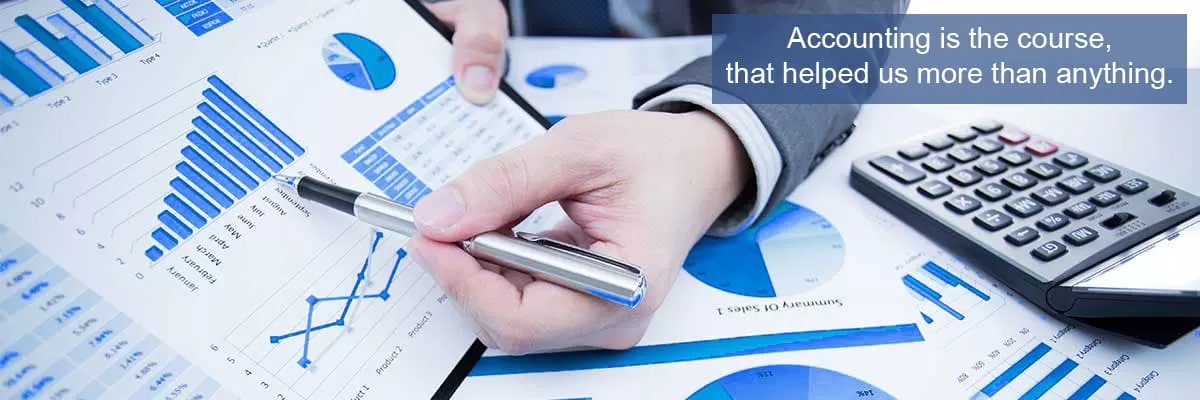
Which is the best course for accounting?
Determining the “best” course for accounting can depend on various factors, including your level of education, career goals, and preferred learning format. Here are some popular accounting courses and programs that are well-regarded:
Certified Public Accountant (CPA)
If you’re in the United States and pursuing a career in accounting, becoming a CPA is highly regarded. The CPA designation is recognized globally and often required for certain roles.
Chartered Accountant (CA)
The CA designation is recognized in many countries and is offered by various professional accounting bodies. The requirements and curriculum may vary by country.
Association of Chartered Certified Accountants (ACCA)
ACCA is a global professional accounting body offering the ACCA qualification. It covers a broad range of accounting and finance topics and is recognized internationally.
Certified Management Accountant (CMA)
The CMA designation is focused on management accounting and is offered by the Institute of Management Accountants (IMA). It is well-regarded for those interested in managerial roles.
Master of Business Administration (MBA) with a Concentration in Accounting
Pursuing an MBA with a focus on accounting provides a broader business perspective and is suitable for those aiming for leadership positions.
Bachelor’s Degree in Accounting
Many universities offer bachelor’s degrees in accounting, providing a solid foundation for entry-level positions. Look for programs accredited by relevant accounting bodies.
Online Courses and Certificates
Platforms like Coursera, edX, and LinkedIn Learning offer various online courses and certificates in accounting and finance. These can be a flexible way to gain specific skills or supplement formal education.
Diploma in Accounting
Some institutions offer diploma programs in accounting, which can be a more focused and shorter-term option than a full degree.
Professional Development Courses
Consider enrolling in professional development courses offered by accounting organizations, industry associations, or training providers to stay current with industry trends and regulations.
When choosing a Best Online Accounting course, consider factors such as accreditation, reputation of the institution or program, curriculum, faculty expertise, and the specific skills and knowledge you aim to acquire. Additionally, check if the course aligns with the requirements of relevant professional accounting bodies in your region.
What is the basic accounting for a small business?
Basic accounting for a small business involves recording, organizing, and managing financial transactions to understand the financial health of the business. Here are key accounting concepts and practices for small businesses:
Chart of Accounts:
Create a chart of accounts, which is a list of all accounts used to categorize transactions. Common accounts include assets, liabilities, equity, income, and expenses.
Double-Entry System
Follow the double-entry accounting system, where each transaction affects at least two accounts with equal and opposite entries.
Recording Transactions
Record all financial transactions systematically. This includes sales, purchases, expenses, loans, and any other financial activities.
Invoices and Receipts
Issue invoices for sales and keep copies of receipts for purchases. This helps in tracking revenue and expenses.
Bank Reconciliation
Reconcile bank statements regularly to ensure that the business’s records match the bank’s records. Identify and resolve any discrepancies.
Recording Sales and Revenue
Track all sales and revenue. Record income when it is earned, not necessarily when the payment is received.
Recording Expenses
Categorize and record all business expenses. This includes rent, utilities, supplies, and any other costs associated with running the business.
Accounts Receivable and Accounts Payable
Monitor accounts receivable (money owed to the business) and accounts payable (money owed by the business). Follow up on overdue payments.
Depreciation
If the business has assets like equipment or vehicles, account for depreciation over time to reflect their decreasing value.
Financial Statements:
Generate basic financial statements such as the Income Statement (Profit and Loss), Balance Sheet, and Cash Flow Statement. These provide a snapshot of the business’s financial performance.
Tax Compliance
Stay compliant with tax regulations. Keep accurate records for income tax purposes and be aware of applicable deductions and credits.
Budgeting
Develop a budget to plan and monitor the business’s financial activities. Compare actual performance against the budget to identify variances.
Accounting Software
Consider using accounting software tailored for small businesses. Examples include QuickBooks, Xero, or FreshBooks, which can automate many accounting tasks.
Regular Financial Reviews
Conduct regular reviews of financial statements and reports. This helps in making informed business decisions and identifying areas for improvement.
Seek Professional Advice
If needed, consult with an accountant or financial advisor to ensure accurate and compliant financial practices.
Adopting these basic Online Accounting course practices can help small businesses maintain financial clarity, make informed decisions, and ensure compliance with financial regulations. As the business grows, more sophisticated accounting practices may be necessary, and professional advice may become increasingly valuable.

Tech Hub Digital, a one-stop destination for complete technology-related information.

